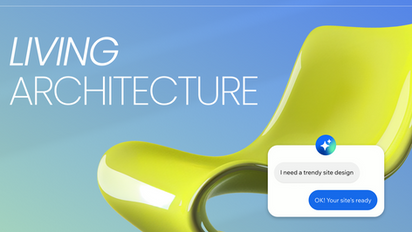Website Development Classes Trends
Quick Website Development Classes Guide
Website Development Classes
In today’s digital age, having a professional and visually appealing website is crucial for any business or individual looking to establish an online presence. One of the key components in creating a website is using a template, which serves as the foundation for the layout and design of the site. Website templates are pre-designed web pages that can be easily customized to fit the specific needs and branding of a business. In this article, we will explore the importance of website templates and how they can benefit individuals and businesses alike.

A Beginner’s Guide to Website Development Classes
Website Development Classes
1. Start with a unique concept
When developing a new recipe, it is important to start with a unique concept that sets your dish apart from others. Consider combining unexpected flavors, using new cooking techniques, or incorporating unusual ingredients to create a recipe that will pique your readers’ interest. You can draw inspiration from different cuisines, culinary trends, or seasonal ingredients to come up with a concept that is both original and appealing.
2. Experiment with different ingredients and flavors
Building recipes is all about experimentation and creativity. Don’t be afraid to try out new ingredients and flavor combinations to create exciting and delicious dishes. Consider incorporating fresh herbs, spices, citrus zest, or other aromatic ingredients to enhance the flavors of your recipe. Experimenting with different cooking techniques, such as grilling, roasting, or braising, can also add complexity and depth to your dishes.
3. Consider dietary restrictions and preferences
When building recipes for your website, it is important to consider the dietary restrictions and preferences of your audience. Make sure to provide options for different dietary needs, such as vegetarian, gluten-free, dairy-free, or vegan recipes. Including nutritional information, such as calorie count, macronutrients, and allergen information, can also make your recipes more accessible and appealing to a wider audience.
4. Include detailed instructions and tips
When writing out your recipes, be sure to provide detailed instructions that are easy to follow. Include step-by-step directions, cooking times, and temperatures, as well as helpful tips and tricks to ensure success in the kitchen. Consider including photos or videos to visually demonstrate each step of the cooking process, making it easier for your readers to replicate your recipes at home.
5. Test your recipes
Before publishing a new recipe on your website, be sure to test it multiple times to ensure that it is accurate and delicious. Invite friends or family members to sample your dishes and provide feedback on the taste, texture, and presentation. Adjust the seasoning, cooking times, or ingredient ratios as needed to perfect your recipe before sharing it with your audience.
6. Engage with your audience
Building recipes on your website is not just about creating delicious dishes – it is also about engaging with your audience and building a community around your food blog. Encourage your readers to leave comments, ask questions, and share their own experiences with your recipes. Consider hosting cooking demonstrations, virtual cooking classes, or recipe contests to interact with your audience and showcase your culinary skills.
When creating a website layout template, there are several key factors to consider. These include the overall structure of the site, the placement of elements such as navigation menus and content sections, and the use of white space to create a clean and uncluttered design. In this article, we will discuss these factors in more detail and provide tips for designing an effective website layout template.
The first step in designing a website layout template is to consider the overall structure of the site. This includes determining the number of pages the site will have, as well as how those pages will be organized. For example, will the site have a homepage with links to other pages, or will it have a single-page design with all content on one long scrollable page? This decision will impact the layout of the site and how users navigate through it.
Once the overall structure of the site has been determined, the next step is to think about the placement of elements within the layout. Navigation menus, for example, are a key component of any website layout template. They should be easy to find and use, with clear labels that indicate the different sections of the site. Placing the navigation menu at the top of the page or along the side is a common practice, but it can also be placed in other locations, such as at the bottom of the page or as a dropdown menu. Experiment with different placements to see what works best for your site.
In addition to navigation menus, content sections are another important element to consider when designing a website layout template. These sections should be clearly defined and easy to read, with headings and subheadings to break up the text. Images and multimedia elements can also be used to enhance the visual appeal of the site and engage users. When placing content sections on the page, be sure to leave plenty of white space around them to create a clean and uncluttered design.
Speaking of white space, this is another key factor to consider when designing a website layout template. White space, also known as negative space, refers to the empty space between elements on the page. It helps to create a sense of balance and harmony in the design, allowing elements to stand out and making the layout easier to read and navigate. Be generous with white space in your website layout template, especially around important elements such as headings, images, and buttons.
When designing a website layout template, it is also important to consider the responsive nature of the design. With more and more users accessing websites on mobile devices, it is essential to create a layout that looks good and functions well on screens of all sizes. This means using a responsive design approach, where the layout adapts to different screen sizes and resolutions. Test your website layout template on various devices to ensure that it looks and works as intended.

Website Development Classes Trends
Website Development Classes
In conclusion, AI web developers are a crucial part of the technological revolution that is transforming the field of web development. These professionals have a deep understanding of AI algorithms, machine learning, natural language processing, and other AI technologies that enable them to create websites that are smarter, more intuitive, and more user-friendly. By leveraging AI technologies, AI web developers are pushing the boundaries of what is possible in web development, creating websites that can think, learn, and adapt to user preferences. If you are looking to create innovative and dynamic websites that stand out in a crowded marketplace, consider working with an AI web developer who can help you harness the power of AI technologies to achieve your goals.

